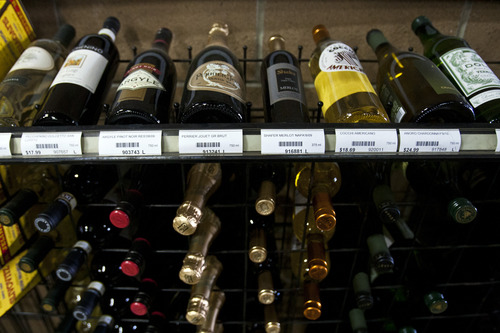This is an archived article that was published on sltrib.com in 2013, and information in the article may be outdated. It is provided only for personal research purposes and may not be reprinted.
When taxes on alcohol go up, consumption and related health and economic problems go down, a Maryland researcher told Utah lawmakers during a presentation on Wednesday.
Making drinkers pay more for beer, wine and spirits reduces drinking among the general population and among heavy drinkers and binge drinkers, David H. Jernigan, with the Bloomberg School of Public Health at Johns Hopkins University, told members of the Business and Labor Interim Committee.
Utah has one of the highest rates of binge drinking in the nation, especially among teenagers. According to the 2013 "Underage Drinking in Utah" report, compiled by the Utah Division of Substance Abuse and Mental Health, while many Utah teens abstain from alcohol for religious reasons, those teens who do drink are much more likely to binge. Bingeing is defined as downing five or more drinks in a row.
Jernigan, who was brought to Utah by the conservative Sutherland Institute, said tying liquor taxes to the Consumer Price Index is one way to accomplish this public health goal.
Last week, Rep. Jack Draxler, R-North Logan, proposed such an increase, suggesting that taxes on wholesale beer increase automatically every year to match inflation, with proceeds going to fund programs designed to combat underage and binge drinking.
The committee took no action on Jernigan's presentation, but several lawmakers wondered if higher prices would send drinkers out of state to purchase alcohol. Jernigan said in his research "there have been no cross-border effects."
After the presentation, committee chairman Sen. Curt Bramble, R-Provo, suggested that any proposal for a tax increase be taken to the Revenue and Taxation committee, headed by Sen. John Valentine, who writes most state liquor legislation.



